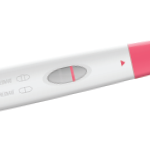NEW YORK (Reuters Health)—New registry data should help reassure women with Crohn’s disease (CD) who need to continue infliximab during pregnancy that it won’t harm their baby.
“The clinical condition of infants born to women with gestational infliximab exposure was similar to those without exposure,” the study team reports online July 19 in the American Journal of Gastroenterology. “Although a lower live birth rate was reported among infliximab-exposed women, these patients had more severe CD and were more likely to have been exposed to immunosuppressives.”1
Using the TREAT registry, Dr. Gary Lichtenstein of the Hospital of the University of Pennsylvania Philadelphia and colleagues classified pregnancy outcomes by maternal infliximab exposure and partner outcomes (infants born to women whose partners were on infliximab at the time of conception).
Among the 324 pregnancies included in their analysis, 252 were maternal exposures; 99 with gestational exposure, 63 with pre-gestational exposure, and 90 with nonbiologic drug exposure. Partner outcomes accounted for 72 pregnancies; 42 with gestational exposure, 17 with pre-gestational exposure and 13 with nonbiologic exposure.
“The majority of both maternal pregnancies and partner outcomes resulted in live births of healthy infants across exposure groups (gestational, pre-gestational, and non-biologic). Among these, rates of neonatal complications were low for both maternal and partner outcomes across exposure groups,” the investigators report.
Among maternal pregnancies, there were numerically higher rates of spontaneous abortions for the gestational exposure than for pre-gestational or non-biologic exposed groups, but not for partner outcomes. “This result may be subject to a reporting bias as more complete data are available for the gestational exposure group compared to women with nonbiologic exposure,” the investigators say.
“For both maternal pregnancies and partner outcomes, disease course remained mostly consistent throughout pregnancy overall. Pregnancy outcomes were favorable with no sign of harmful effects of biologics on the outcome of pregnancy for those mothers requiring continued treatment throughout pregnancy,” they write.
“This study is the longest duration prospective observational analysis performed evaluating pregnancy outcomes with biologic therapy in patients with inflammatory bowel disease,” Dr. Lichtenstein and colleagues say.
They point out that the Toronto Consensus statement has suggested that TNF-antagonist therapy is associated with a low risk of adverse pregnancy outcomes, and that the short-term benefits of maintaining remission are likely to outweigh the potential risks to the fetus.
“Although the TREAT Registry was not designed to be a pregnancy registry and lacks the ability to track infants after birth, careful examination of neonatal complications (i.e., miscarriages and /infancy disorders) reported during the 13-year, real-world setting of the TREAT Registry do not suggest a relationship between infliximab exposure and adverse pregnancy outcomes,” they conclude.

